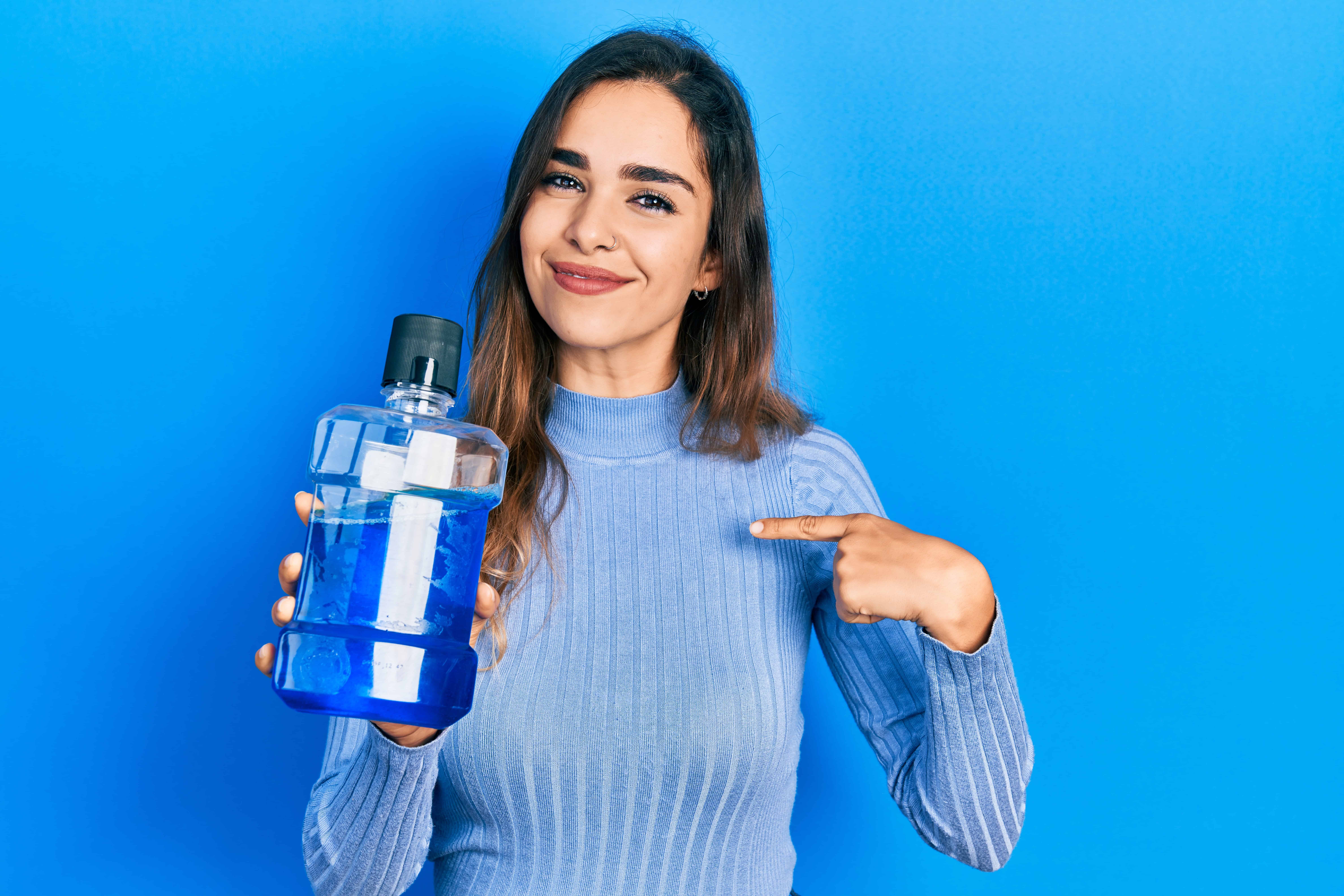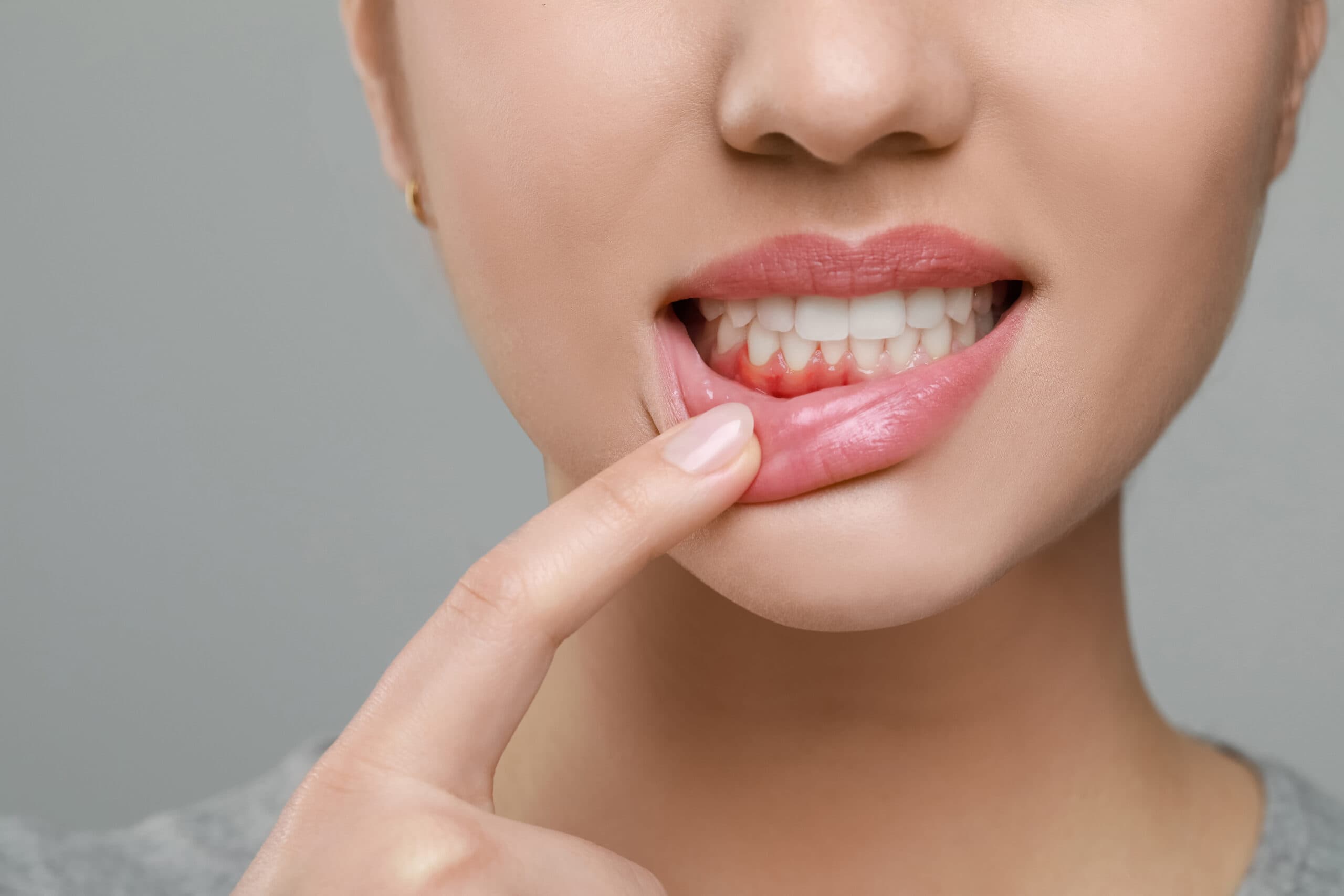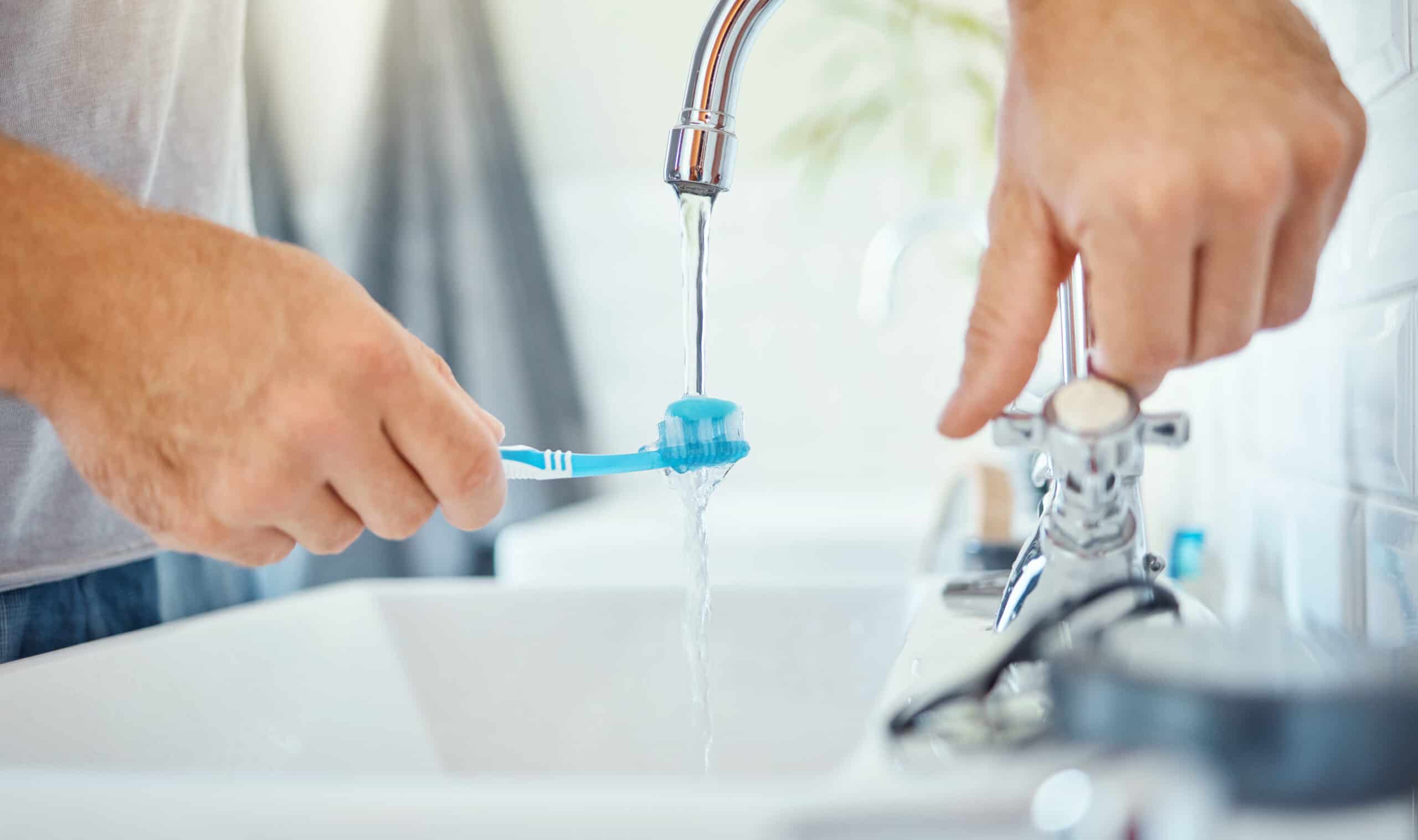Rinsing with mouthwash is one great way to freshen your breath. With various flavors to choose from and options like Cosmetic, Fluoride, Natural, Antiseptic, and Total, they seem like an ideal way to complete your oral care routine. But is mouthwash safe for your teeth?
Some types of mouthwash contain alcohol as an active ingredient, while others are alcohol-free. Using oral rinse daily is an excellent way to keep your teeth and gums healthy. This allows you to access those hard-to-reach areas by removing plaque and debris that sometimes stick below the gums.
The Dangers of Alcohol-Based Mouthwash
While most oral rinses are excellent preventative tools and an important part of oral care, not all mouthwashes are created equal. Using an alcohol-based mouthwash carries risks, including:
- Oral cancer—Holding alcohol-based oral rinse in your mouth for long periods of time introduces you to higher levels of carcinogens.
- Canker sores—. Most mouthwashes and toothpaste carry an ingredient called Sodium Lauryl Sulfate. This ingredient creates the foaming action and can cause or aggravate canker sores.
- Dry mouth—Using a mouthwash that contains alcohol can cause or worsen symptoms of dry mouth.
- May cause a burning sensation or pain when you use alcohol-based mouthwash.
Using mouthwash can cause these types of side effects for some people. And, certain formulas are more likely to cause more side effects than others. You should speak to your dentist if you’re concerned about the brand you’re using.
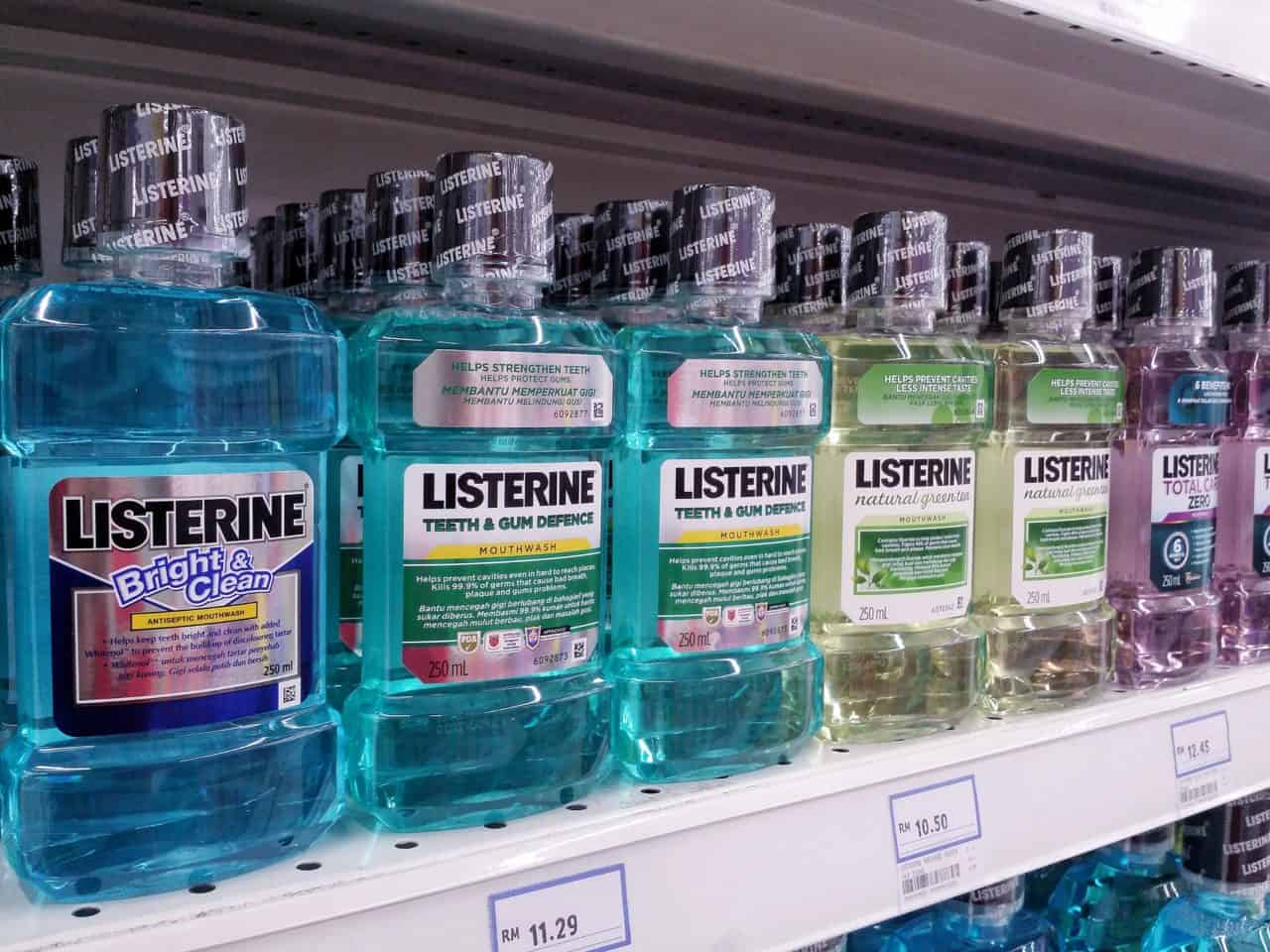
Side Effects of Mouthwash without Alcohol
With so many options for oral rinses, most people decide based on personal preference and whether or not they like the burning sensation of Ethanol. Opting for an alcohol-free product also has its risks, such as:
- While there is plenty of bad bacteria in your mouth, there are also good bacteria. Oral microbiome breaks down food and maintains healthy teeth and gums. Using an alcohol-free mouthwash on a regular basis can do more harm than good.
- According to a study, teeth staining is the most common side effect of using mouthwash. Because an active ingredient found in some mouthwash is chlorohexidine, this makes it more likely to cause temporary staining after use.
- Using oral rinses may be linked to a higher risk of oral cancer. A 2016 study showed that people who regularly use mouthwash may have a slightly elevated risk of head and neck cancers than those who never use mouthwash.
While it’s true that mouthwash is effective at improving oral hygiene, you should never replace brushing, flossing, or making regular trips to the dentist. If you’re unsure which type of mouthwash to use, ask the professionals in your dentist’s office.
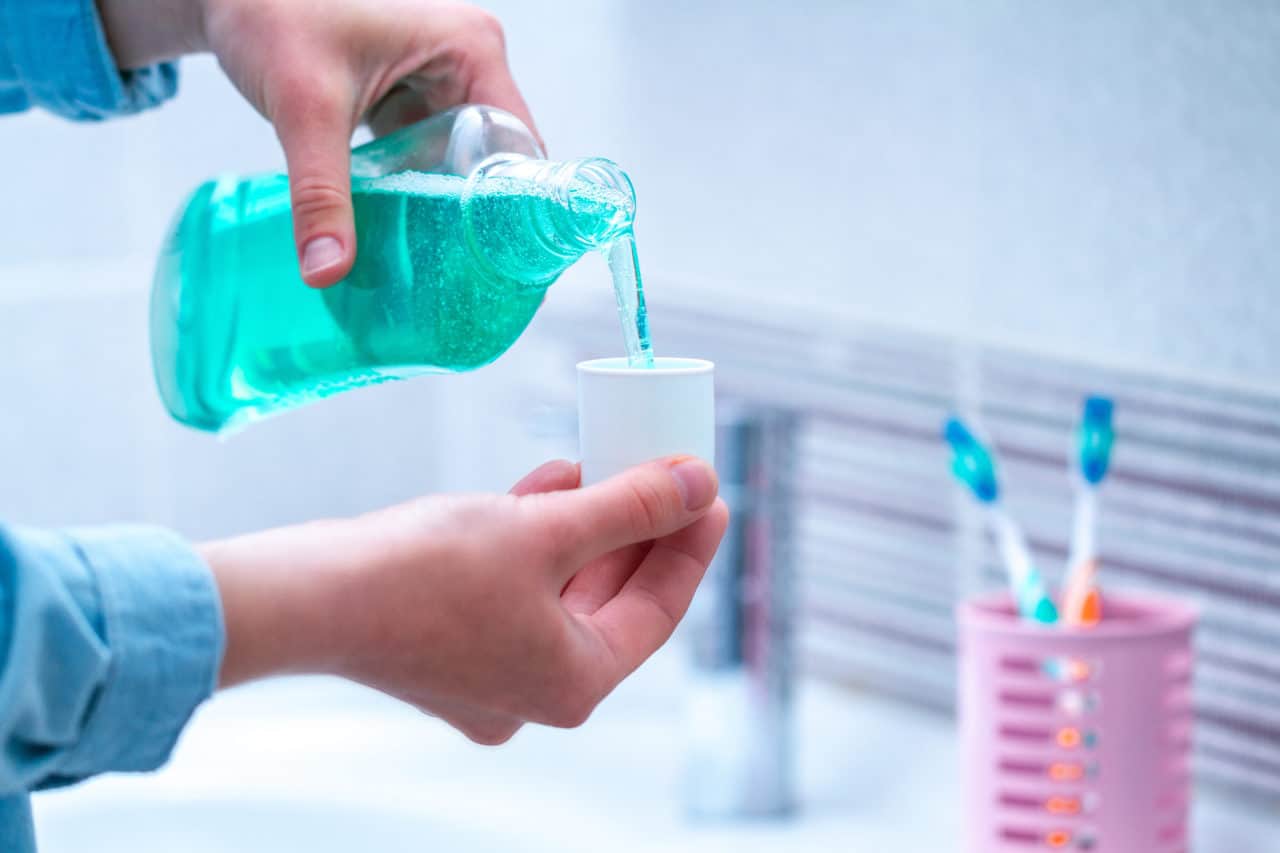
What Are The Alternatives?
There are plenty of reasons why people avoid both alcohol and alcohol-free mouthwash, including, artificial colors, fluoride, other additives, and alcohol. Natural products that will keep your breath equally fresh and your mouth healthy, include:
- Hydrogen Peroxide is an antiseptic that is often recommended as a rinse for minor throat complaints and mouth sores. It also assists with combating bad breath from the bacteria and germs in your mouth.
- Baking Soda also known as sodium bicarbonate is well known for its antiseptic properties, which gets rid of the odor causing bacteria in your mouth plus you can use baking soda as a teeth whitener.
- Peppermint Oil is a great alternative. Just take a few drops of the oil and mix it with water to create a homemade mouthwash.
Overall, mouthwash isn’t bad for you, but it can create some unpleasant side effects.
At Asheville Dental, nothing is more important than providing the highest-quality dentistry to our patients. We believe in establishing long-lasting relationships with patients built on genuine care and honest, friendly communication. If you’re ready to take the next step and learn how to improve your dental health, contact us today! We’re happy to answer any questions you may have regarding chronic bad breath, concerns about plaque buildup, or just general questions!

